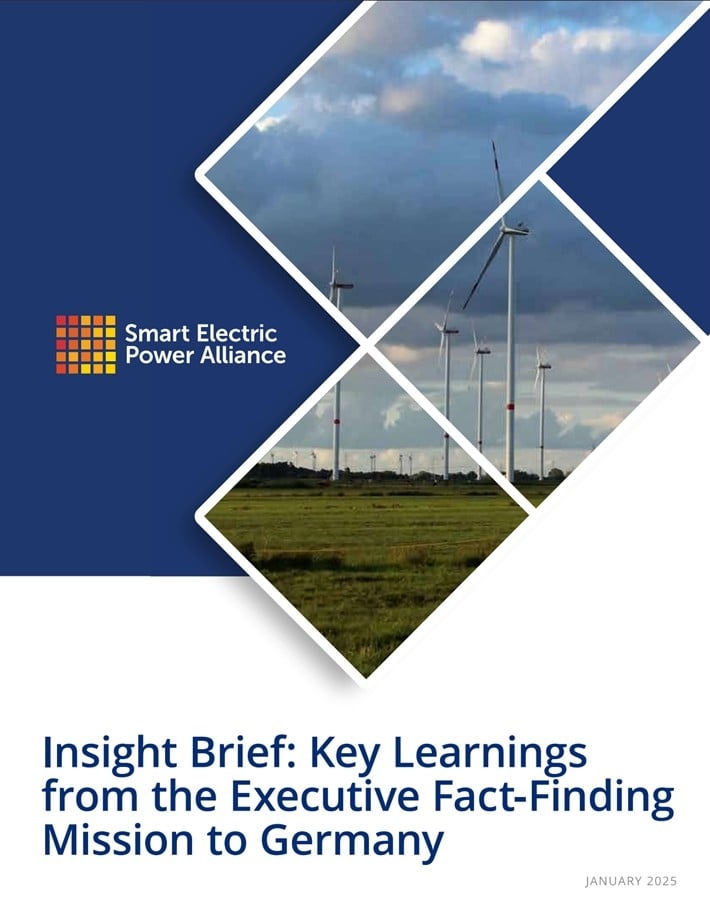In October, a group of U.S. utility and technology executives joined SEPA’s 15th Executive Fact-Finding Mission to Germany. This trip uncovered key insights from Germany’s ambitious energy transition, known as the Energiewende. Through meetings with policymakers, industry leaders, and utilities, the delegation gained a comprehensive understanding of Germany’s strategies to decarbonize, strengthen energy security, and integrate innovative technologies. These insights provide valuable lessons for the U.S. energy sector as it navigates its own transition toward a cleaner, more sustainable energy future.
SEPA’s Executive Fact-Finding Mission to Germany offered a unique opportunity to study the Energiewende—Germany’s decarbonization and energy transformation strategy. The mission revealed both the strengths and challenges of Germany’s grid-centric, policy-driven approach, including its focus on sector coupling, hydrogen infrastructure, and public support. The U.S., while more market-driven and customer-focused, faces similar challenges in grid expansion and renewable integration. By examining Germany’s experiences, U.S. energy leaders can identify pathways to accelerate the transition to a low-carbon energy system while addressing affordability, innovation, and public support.
This brief underscores the importance of international collaboration in advancing renewable energy solutions and shaping a sustainable energy future for all.
Authors
- Garrett Fitzgerald, Senior Director, Research & Industry Strategy, Transportation Electrification, SEPA
- Janne Knieke, Analyst, Research & Industry Strategy, SEPA
